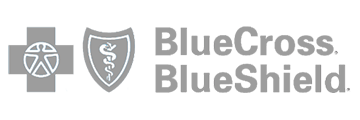Addiction
Don’t Blame Yourself For Addiction
Medically Reviewed By
Written By
Last medically reviewed February 6, 2025
Addiction
Medically Reviewed By
Written By
Last medically reviewed February 6, 2025
Southeast Addiction is dedicated to treating substance use disorders and providing a place for addicts who require help to receive it in an understanding and compassionate manner.
Almost 21 million Americans have at least one addiction, but only 10% of them receive any kind of treatment for it. Imagine that, imagine if 21 million Americans had a serious illness, but only 10% of them received medication for it, that’d be preposterous, right? Yet substance use disorders often do go untreated for many reasons. Some people refuse to admit that there is even a problem to begin with, and some focus on it excessively—let’s talk about the latter.
It might seem strange to break down a word we all use in everyday language, but meaning often lies in how we use our language. Blame is something that is assigned. When something goes wrong, you blame your family, your friends, your job, school, stress, etc. However, does this ever accomplish anything? Even if something isn’t entirely your fault—like addiction, it’s still your problem to deal with.
Congratulations, you blame yourself and beat yourself up every day, is this going to free you from your addiction to substances or self-destructive behaviors? If only it were that easy. At Southeast Addiction, we can testify firsthand that blame seldom fixes a problem. In fact, it’s the opposite. Blame is often an enormous stress trigger that causes a lot of inner turmoil and pain. When you hate yourself, blame yourself, and are otherwise unkind to yourself, you just create a lot of stress and pressure that is most likely going to trigger a relapse or cause you to seek out unproductive ways of coping.
Blame can sound a lot like being accountable, or responsible for something. Blame is not the same as accountability, however. Blame and guilt go hand in hand. Why do we ever blame ourselves or someone else for something? It’s because there is an outcome that we are not proud of and in order to deal with the guilt we assign blame. That is why blaming yourself unduly is the worst in terms of harm, you are doubling down on those negative feelings.
Even worse is when a person becomes highly attached to their negative feelings. They believe they are the worst and are not worth receiving help. This is absolutely unacceptable in our books. It is our belief at Southeast Addiction that everyone is deserving of help.
Substance Use Disorders aren’t just an emotional or psychological phenomenon. The advancements in neuroscience and our knowledge of how the brain works has been radically changing. We know understand that the brain can not only change (neuroplasticity) but we also understand that everyone’s brain reacts to things differently. Everyone has different chemical balances—the most important would be the function of dopamine, the pleasure chemical.
We know that drugs give a person a huge hit of dopamine which is what causes that pleasurable sensation. However, it’s been shown time and time again that the brains of people who are addicted or highly susceptible to addiction have abnormal dopamine responses to substances.
Consider what this means in terms of toxic blaming behaviors. A person may excessively blame themselves for their addiction, but all along they were much more susceptible to that addiction than others. This is even backed up further when you observe that addiction tends to run in families. It can’t be explained away by children mimicking behaviors they saw growing up. A person may not have ever met their grandparent who suffered from substance use issues, but it is entirely possible and common enough that they show a heightened sensitivity to those substances.
Southeast Addiction is dedicated to treating substance use disorders and providing a place for addicts who require help to receive it in an understanding and compassionate manner. We strongly believe that you cannot treat addiction without having the utmost compassion for those affected. In the same vein, this article discussed how blame is incredibly toxic and not at all productive to recovery. While we strongly believe in being compassionate ourselves, we also advise that those suffering from a substance use problem be compassionate to themselves. Without self-acceptance and kindness, it will only be more difficult to come to terms with your addiction and seek out the help you absolutely deserve.
Please, seek us out. Contact us at (770)-217-7832 to take the first step towards a new, better life.






